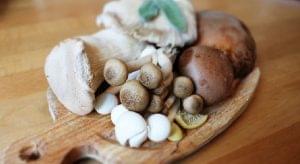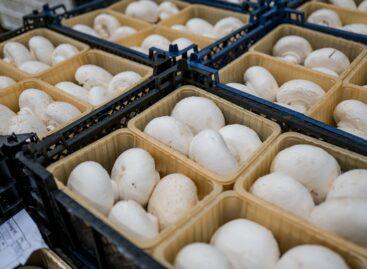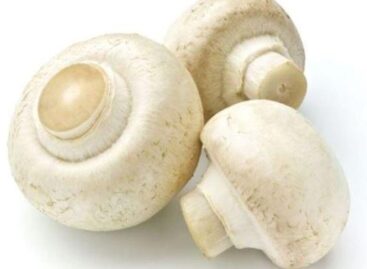Mushroom consumption is increasing both in Europe and at home
EU mushroom production has exceeded one million tons, and Hungary is also taking an increasingly large slice of it. Demand is growing, but growers are facing serious challenges, and collectors should be careful: the number of mushroom poisonings has increased tenfold – writes Agrárszektor.
 Mushroom production in the European Union has set a new record: according to recent Eurostat data, production exceeded one million tons per year, of which Hungary also has an increasingly significant share. In our country, 28 thousand tons of champignons and 2.8 thousand tons of oyster mushrooms are produced annually, so the two species together dominate the domestic mushroom market.
Mushroom production in the European Union has set a new record: according to recent Eurostat data, production exceeded one million tons per year, of which Hungary also has an increasingly significant share. In our country, 28 thousand tons of champignons and 2.8 thousand tons of oyster mushrooms are produced annually, so the two species together dominate the domestic mushroom market.
Polish and Dutch dominance, German decline
At the EU level, Poland and the Netherlands lead the field, with annual production of over 200 thousand tons registered in both countries. However, a slight decline can be observed in Germany, which is why the country is increasingly dependent on imports. In parallel, the EU net producer price of champignons also decreased, falling from EUR 2.85 to EUR 2.53 by February 2025.
Stable prices at home, growing demand
On the Hungarian market, on the other hand, there was an increase in prices: according to data from the Institute of Agricultural Economics (AKI), the price per kilo of champignons at the Budapest Wholesale Market increased from HUF 979 to HUF 1,000 (+11%), and that of oyster mushrooms from HUF 1,172 to HUF 1,202 (+8%) in the first fourteen weeks of the year. The demand for mushrooms is also related to the increase in consumer awareness, as these foods are healthy, can be grown sustainably, and are available all year round.
Growers’ concerns: costs, pathogens and restrictions
Although the sector employs more than 40,000 people at EU level, producers say it is becoming increasingly difficult to stay afloat. Rising minimum wages, energy costs and limited control options are squeezing operating margins. Infectious diseases – viruses, bacteria, molds – can significantly reduce crop yields and quality, while a growing number of consumers are looking for chemical-free, organically grown mushrooms.
Related news
Clustered Agaricus Named Hungary’s Mushroom of the Year for 2026
🎧 Hallgasd a cikket: Lejátszás Szünet Folytatás Leállítás Nyelv: Auto…
Read more >Related news
Nestlé to sell remaining ice-cream assets but commits to Froneri venture
🎧 Hallgasd a cikket: Lejátszás Szünet Folytatás Leállítás Nyelv: Auto…
Read more >40 secure jobs, sustainable solutions – new BURGER KING® in Csepel
🎧 Hallgasd a cikket: Lejátszás Szünet Folytatás Leállítás Nyelv: Auto…
Read more >







